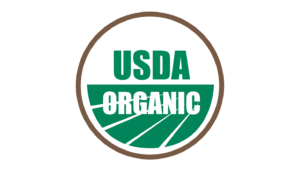
06 Aug Big supermarkets align with natural products companies to respond to consumer needs
The challenges that the food industry is facing along with the cultural changes in consumer habits are leading the big supermarket chains to revise their strategic positioning and try to associate themselves with concepts such as ‘healthy living’ and the new trends that arise in the food world like superfoods. Well-known companies in the United States like Walmart or Whole Foods, among many others, are beginning to manage policies and programs in this regard.
The retail industry has been working on the impacts that their market products are having on society, the environment and the sustainable development for a few years.
Data (NHANES)
According to data from the National Health and Nutrition Examination Survey (NHANES), 2013–2014:
- More than 1 in 3 adults were considered to be overweight.
- More than 2 in 3 adults were considered to be overweight or have obesity.
- More than 1 in 3 adults were considered to have obesity.
- About 1 in 13 adults were considered to have extreme obesity.
- About 1 in 6 children and adolescents ages 2 to 19 were considered to have obesity.
However, studies also show that United States citizens are looking for a healthier life and come to buy food that meets those needs. A study carried out in 2006 tried to understand the diet quality for multiple individual foods and nutrients, and the corresponding disparities among population subgroups. They saw it as the key to identify challenges and opportunities to improve dietary intake for all US adults. The results demonstrated that several improvements in self-reported dietary habits between 1999 and 2012 existed.
“These findings may inform discussions on emerging successes, areas for greater attention, and corresponding opportunities to improve the diets of individuals living in the United States,” the study concluded.
Retail adapts to consumer demands
In this way, American chains have adapted their self to that growing demand. Whole Foods, for example, has distinguished itself by selling only organic and healthy products. In 2014 it was the best-evaluated company by Greenpeace for Seafood Sustainability.
“Our strict purchasing policies for wild-caught fish, partnerships with leading scientific organizations, public advocacy, pioneering transparency with standards and labeling, traceability in the supply chain, customer education, fishmonger expertise and industry-leading aquaculture standards combined demonstrate our continued leadership in seafood sustainability,” Whole Foods said.
This tendency that the retail sector has adapt to differentiate and innovate in healthy products is not only a trend, it has come to stay. From Gold Foods USA we have realized this by offering the best seeds of the market.
Thus, the Millennials generation is the one that is pushing this change, because they are the most open to consume this type of food, according to the investigation of the Hartman group. In the study a change in our way of consuming is perceived. Millennials read the labels of the products, looks for less processed and preferably organic foods.
The big supermarkets respond to these new generations demands by leaning on companies that sell their organic products in bulk, for example, as we do in Gold Foods USA, adding the products as a private label, to jointly achieve to develop a chain of sustainable and deconcentrated value.



